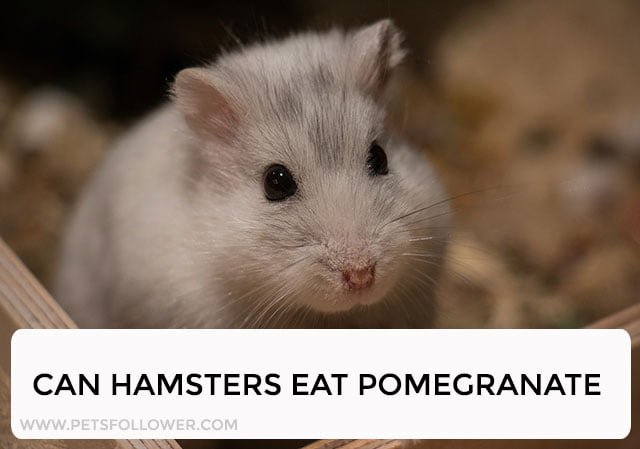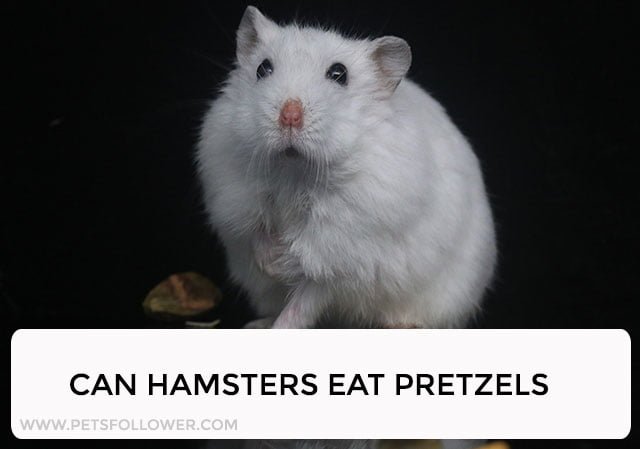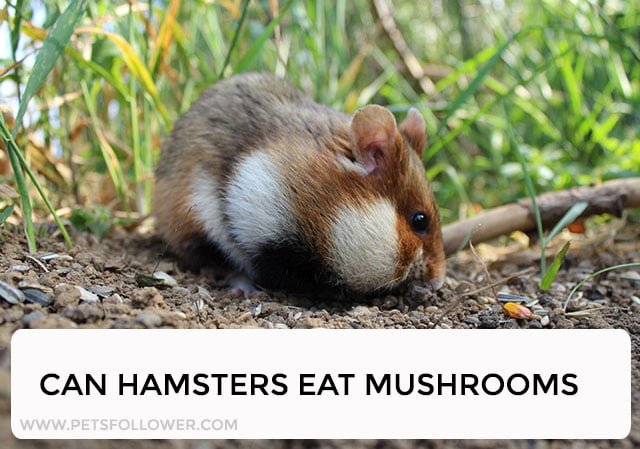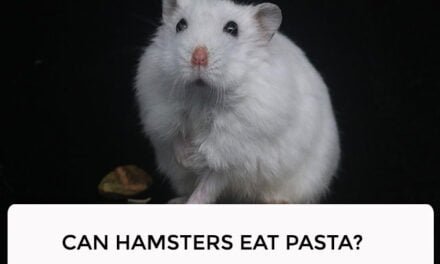Hamsters are omnivores and can eat a variety of foods, including fruits, vegetables, and grains. One food that often comes to mind when thinking of grains is corn. But can hamsters eat corn? The answer is yes, but with some important considerations.
Corn can be a nutritious addition to a hamster’s diet when given in moderation. It contains carbohydrates, protein, fiber, and other essential nutrients that contribute to a healthy diet. However, it is important to note that not all forms of corn are safe for hamsters to eat. Canned or creamed corn, for example, should be avoided due to their high sodium content. It is also important to prepare corn properly before feeding it to a hamster to avoid any potential digestive issues.
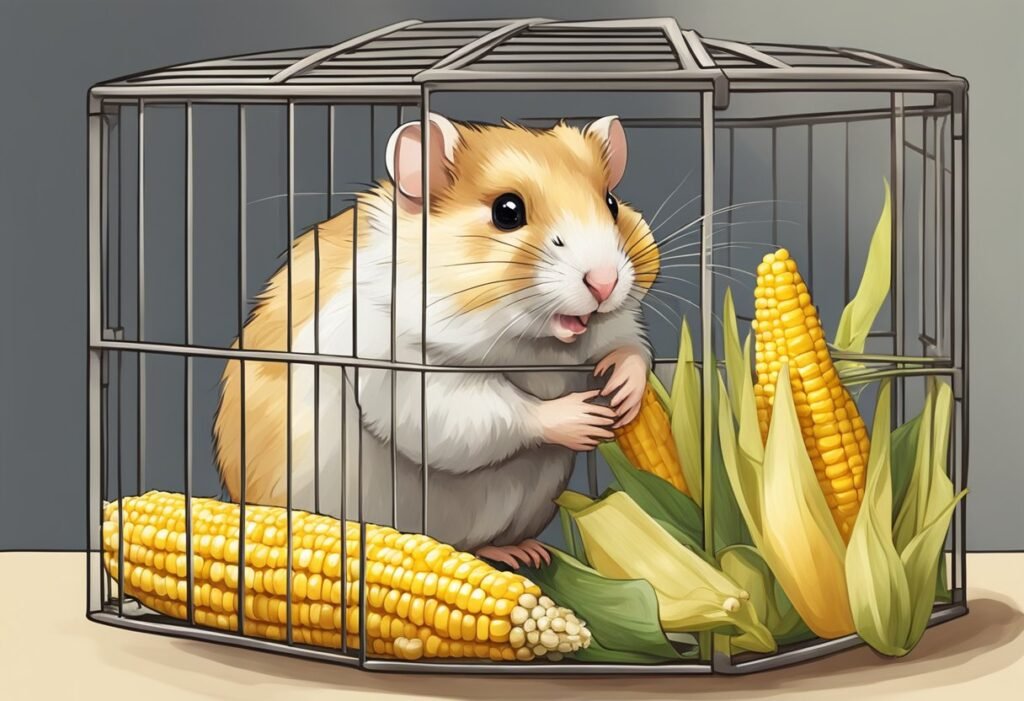
Hamster Dietary Basics
Hamsters are omnivores and require a balanced diet to maintain good health. Their diet should consist of a variety of foods, including fresh fruits and vegetables, grains, and protein sources. It is important to note that not all foods are safe for hamsters to eat, and some can even be toxic.
Hamsters require a diet that is high in fiber to promote good digestion. They also need protein for muscle growth and repair. A good balance of fat and carbohydrates is also important for energy and overall health.
When feeding a hamster, it is important to provide a variety of foods to ensure that they are getting all of the necessary nutrients. Fresh fruits and vegetables should be offered in moderation, as they can be high in sugar. Grains, such as oats and barley, are a good source of carbohydrates and fiber.
Protein sources for hamsters can include commercial hamster food, as well as cooked meats, tofu, and boiled eggs. It is important to avoid feeding hamsters foods that are high in fat, such as cheese and nuts.
In conclusion, hamsters require a balanced diet that is high in fiber, protein, and carbohydrates. Fresh fruits and vegetables should be offered in moderation, and protein sources should be varied. By providing a balanced diet, hamsters can maintain good health and live a long, happy life.
Can Hamsters Eat Corn?
Hamsters are omnivores and can eat a variety of foods, including fruits, vegetables, and grains. Corn is one of the grains that hamsters can eat, but it should be given to them in moderation and prepared in the right way.
Corn contains beneficial nutrients such as fiber, protein, and vitamins, but excess starch and fiber may cause digestive upset in hamsters. Therefore, it is recommended to limit corn to 1-2 small pieces, once or twice weekly.
It is important to note that hamsters should not be fed canned corn or creamed corn due to the high sodium content. Thawed frozen corn is also not recommended because it often has added sodium. Hamsters can eat raw or steamed corn, as well as dried corn kernels. However, baby corn, which is usually sold canned or pickled, may be difficult to find fresh and should be avoided.
Eating corn can pose a choking hazard to hamsters, which is why it’s important to offer bite-sized pieces that your hamster can easily chew on. Corn is high in carbohydrates and sugar, so dwarf hamsters should never eat corn due to the high possibility of obesity and diabetes. Large hamsters, such as the Syrian hamster, can tolerate small amounts of corn as part of a balanced diet.
In conclusion, hamsters can eat corn, but it should be given in moderation and prepared in the right way. It is important to avoid canned or creamed corn, baby corn, and thawed frozen corn. Hamsters should be offered bite-sized pieces that they can easily chew on to avoid choking hazards.
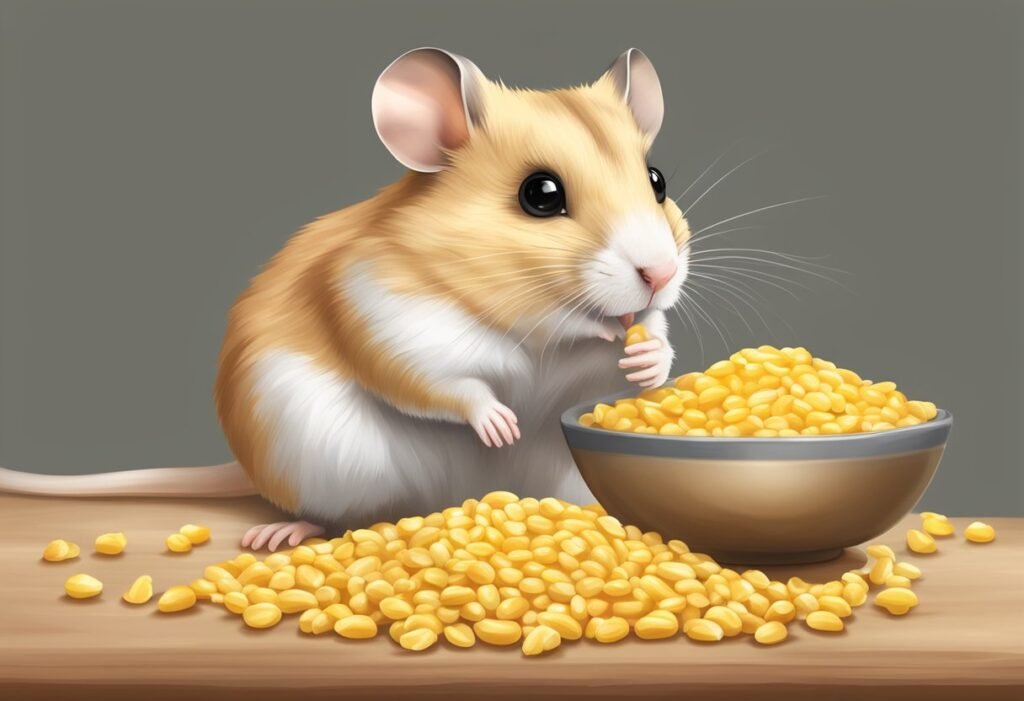
Nutritional Value of Corn
Corn is a popular cereal grain that is widely consumed by humans and animals alike. It is a rich source of carbohydrates, fiber, vitamins, and minerals. Hamsters can also eat corn, but it should be given in moderation.
According to Pet Keen, hamsters can eat raw or steamed corn, as well as dried corn kernels. However, canned corn or creamed corn should be avoided due to the high sodium content. Baby corn, which is usually sold canned or pickled, may also be difficult to find fresh and should be avoided.
Corn is a good source of carbohydrates, which provide energy to the body. It also contains fiber, which helps in digestion and promotes bowel regularity. Additionally, corn is a rich source of vitamins and minerals such as vitamin B6, thiamin, niacin, and folate, as well as magnesium, phosphorus, and potassium.
However, corn should be given in moderation to hamsters as it is also high in sugar. Dwarf hamsters should never eat corn due to the high possibility of obesity and diabetes. Large hamsters, such as the Syrian hamster, can eat corn in small amounts as a treat.
In conclusion, corn can be a healthy addition to a hamster’s diet when given in moderation. It is important to avoid canned or creamed corn and to give only small amounts of fresh or dried corn kernels.
Benefits of Corn for Hamsters
Corn can be a healthy addition to a hamster’s diet when fed in moderation. It contains essential nutrients that can help keep hamsters healthy and happy.
One of the main benefits of corn for hamsters is its high fiber content. Fiber is essential for maintaining a healthy digestive system and preventing constipation. Corn also contains vitamins and minerals such as vitamin B6, thiamin, and magnesium, which are important for overall health and wellbeing.
In addition to its nutritional benefits, corn can also provide mental stimulation for hamsters. Chewing on a corn cob or eating fresh corn kernels can help keep hamsters entertained and engaged, which is important for their mental health.
However, it is important to note that corn should only be fed to hamsters in small amounts as part of a balanced diet. Too much corn can lead to digestive upset and obesity, which can have negative impacts on a hamster’s health. It is also important to prepare corn properly before feeding it to hamsters, as salted or sugary corn products can be harmful to their health.
Overall, corn can be a healthy and enjoyable treat for hamsters when fed in moderation and prepared properly.
Risks of Feeding Corn to Hamsters
While corn can be a tasty treat for hamsters, it should be given in moderation due to the potential risks it poses to their health. Here are some of the risks of feeding corn to hamsters:
1. Choking Hazard
Corn kernels can be a choking hazard for hamsters, especially if they are not prepared properly. It is essential to offer bite-sized pieces that are easy to chew and swallow. If the corn is too big, it can get stuck in the hamster’s throat, leading to choking and other respiratory problems.
2. Obesity and Diabetes
Corn is high in carbohydrates and sugar, making it a risky food for dwarf hamsters. Overconsumption of corn can lead to obesity and diabetes, which can be life-threatening for hamsters. Large hamsters, such as the Syrian or Roborovski hamster, have less risk, but it’s still important to monitor their corn intake.
3. Digestive Problems
Feeding too much corn to hamsters can cause digestive problems, such as diarrhea and bloating. Corn is high in fiber, which can be difficult for hamsters to digest if they eat too much of it. It is essential to offer a balanced diet that meets all of their nutritional needs.
To avoid these risks, hamster owners should only offer corn as an occasional treat and in small amounts. It is also important to prepare the corn properly and monitor the hamster’s reaction to it. If the hamster shows any signs of discomfort or illness, it is best to stop feeding them corn and consult a veterinarian.
How to Feed Corn to Hamsters
Proper Portion Sizes
When feeding corn to hamsters, it is important to offer bite-sized pieces that your hamster can easily chew on. According to Hepper, hamsters should only be fed small amounts of corn as a treat. Large hamsters can have one or two small pieces of corn once or twice a week. Dwarf hamsters should never eat corn due to the high possibility of obesity and diabetes.
Frequency of Feeding
Hamsters should be fed corn in moderation. It is recommended to only give them corn as a treat once or twice a week. Giving your hamster too much corn can lead to health issues such as obesity and diabetes, as mentioned by Pet Keen.
Preparation of Corn
When offering corn to your hamster, it is important to remember to avoid canned corn, creamed corn, corn on the cob, corn husks, and cornmeal, as stated by Tiny Pet Tales. Cooked corn kernels without any additives or seasoning are the safest option for hamsters. Thawed frozen corn is not recommended because it often has added sodium, as mentioned by Pet Keen.
In summary, corn can be fed to hamsters as a treat in moderation. Proper portion sizes, frequency of feeding, and preparation of corn are all important factors to consider when feeding your hamster corn. By following these guidelines, you can ensure that your hamster stays healthy and happy.
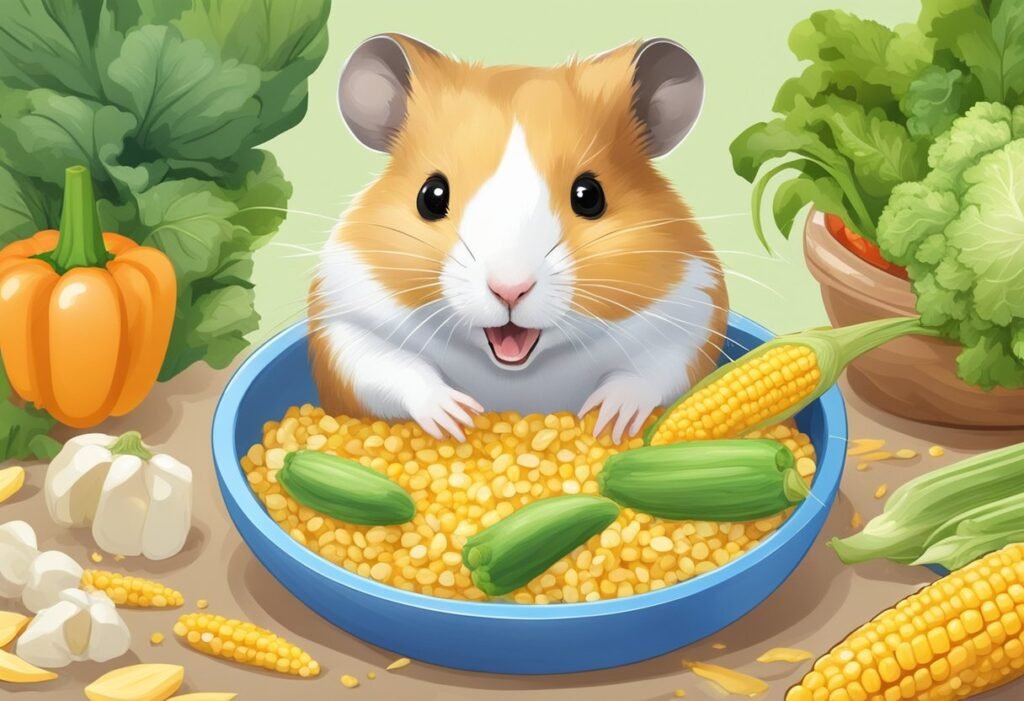
Types of Corn and Their Effects
Fresh Corn
Fresh corn is a great source of fiber, vitamins, and minerals. Hamsters can eat fresh corn in moderation as a treat. However, it is important to remove the husk and silk before feeding it to your hamster. The husk can be difficult to digest and may cause digestive problems. Additionally, the silk can get stuck in your hamster’s teeth and cause dental issues.
Cooked Corn
Cooked corn can be a safe and healthy treat for hamsters. It is important to avoid adding any salt, butter, or other seasonings to the corn. Hamsters should only be given plain, cooked corn kernels. Cooked corn is easier for hamsters to digest than raw corn. However, it should still be given in moderation to prevent digestive problems.
Canned Corn
Canned corn should be avoided when feeding hamsters. Canned corn often contains added salt and preservatives that can be harmful to hamsters. Additionally, canned corn may be high in sugar, which can lead to obesity and other health problems. It is best to stick to fresh or cooked corn when feeding hamsters.
Corn Kernels
Corn kernels can be a healthy treat for hamsters when given in moderation. However, it is important to avoid feeding hamsters corn on the cob or the husk. The husk can be difficult to digest and may cause digestive problems. Additionally, the cob can be a choking hazard and may cause dental issues. Hamsters should only be given plain, cooked corn kernels as a treat.
Overall, corn can be a healthy addition to a hamster’s diet when given in moderation and prepared correctly. It is important to avoid adding any seasonings, salt, or sugar to the corn and to remove the husk and silk before feeding it to your hamster.
Can Hamsters Eat Corn on the Cob?
Hamsters can technically eat corn on the cob, but it is not recommended. Corn on the cob is difficult for hamsters to digest and can cause digestive issues such as diarrhea and bloating. Additionally, the cob itself poses a choking hazard and can cause blockages in the digestive tract.
It is important to note that corn on the cob should not be given to hamsters, even as a treat. Instead, hamsters can be given cooked corn kernels without any additives or seasoning. Raw or steamed corn, as well as dried corn kernels, are also safe options for hamsters.
When offering corn to your hamster, it is important to remember to give it in moderation. Corn is high in carbohydrates and sugar, which can lead to obesity and diabetes in hamsters if given in excess. It is recommended to limit corn to 1-2 small pieces, once or twice weekly.
Overall, while hamsters can technically eat corn on the cob, it is not recommended due to the potential digestive issues and choking hazards. Instead, it is best to stick to cooked corn kernels or other safe options in moderation.
| Pros | Cons |
|---|---|
| Contains beneficial nutrients | Difficult for hamsters to digest |
| Provides energy | Choking hazard |
| Safe as a treat in moderation | High in carbohydrates and sugar |
| Raw or steamed corn, as well as dried corn kernels, are also safe options | Can cause digestive issues if given in excess |
Can Dwarf Hamsters Eat Corn?
Dwarf hamsters can eat corn, but it should be given in moderation as it is high in carbohydrates and sugar. According to PetShun, it is best to offer small, bite-sized pieces to reduce the risk of choking. It is also important to monitor the dwarf hamster’s reaction to corn and to discontinue feeding if any negative symptoms, such as diarrhea or bloating, occur.
One thing to keep in mind is that dwarf hamsters have a higher risk of developing diabetes and obesity. Therefore, it is essential to limit the amount of corn they consume. According to Hepper, dwarf hamsters should never eat corn due to the high possibility of obesity and diabetes. On the other hand, larger hamsters can eat corn in moderation.
In conclusion, dwarf hamsters can eat corn, but it should be given as an occasional treat. It is essential to keep the portions small and monitor the hamster’s reaction to corn. If any negative symptoms occur, discontinue feeding corn to the hamster.
Can Hamsters Eat Candy Corn?
Candy corn is a popular treat during Halloween and other festive occasions. It is made from sugar, corn syrup, and other ingredients. But can hamsters eat candy corn?
Unfortunately, candy corn is not a suitable food for hamsters. It is high in sugar and calories, which can cause obesity and other health problems. Hamsters have a small digestive system, and consuming sugary foods can lead to digestive upset and diarrhea.
Moreover, candy corn contains artificial colors and flavors that can be harmful to hamsters. These additives can cause allergic reactions and other health issues. Therefore, it is best to avoid giving candy corn to hamsters.
Instead, hamsters should be fed a balanced diet that includes fresh fruits, vegetables, and high-quality hamster food. Some suitable fruits for hamsters include apples, bananas, and strawberries. Vegetables such as carrots, broccoli, and spinach are also good for hamsters.
In conclusion, hamsters should not be given candy corn. It is high in sugar and calories and can cause digestive upset and other health problems. Hamsters should be fed a balanced diet that includes fresh fruits, vegetables, and high-quality hamster food.
Alternatives to Corn in a Hamster’s Diet
While corn is safe for hamsters to eat in moderation, it should not be a staple in their diet. Hamsters require a balanced diet that includes a variety of foods to meet their nutritional needs. Here are some alternatives to corn that you can include in your hamster’s diet:
Vegetables
Hamsters enjoy a variety of vegetables, and they are an excellent source of vitamins and minerals. Some vegetables that you can feed your hamster include:
- Carrots
- Broccoli
- Kale
- Spinach
- Asparagus
Make sure to wash the vegetables thoroughly before feeding them to your hamster. Also, introduce new vegetables gradually to avoid digestive upset.
Fruits
Fruits are a great source of vitamins and fiber, but they are also high in sugar. Therefore, you should only feed your hamster small amounts of fruit as a treat. Some fruits that you can feed your hamster include:
- Apples
- Bananas
- Blueberries
- Strawberries
- Watermelon
Make sure to remove the seeds and pits from the fruit before feeding it to your hamster.
Protein
Hamsters require protein in their diet to maintain muscle mass and promote healthy growth. You can provide your hamster with protein by feeding them:
- Cooked chicken
- Cooked eggs
- Mealworms
- Crickets
- Tofu
Make sure to cook the chicken and eggs thoroughly before feeding them to your hamster. Also, only feed your hamster small amounts of protein to avoid digestive upset.
In conclusion, while corn is safe for hamsters to eat in moderation, it should not be a staple in their diet. Hamsters require a balanced diet that includes a variety of foods to meet their nutritional needs. By including vegetables, fruits, and protein in your hamster’s diet, you can ensure that they are receiving all the nutrients they need to stay healthy.
Monitoring Your Hamster’s Health
It is important to monitor your hamster’s health, weight, and behavior when feeding them corn. Hamsters can eat all parts of the corn plant, including the husk, leaf, and silk. However, it is important to offer bite-sized pieces that your hamster can easily chew on to avoid choking.
Corn is high in carbohydrates and sugar, so dwarf hamsters should never eat corn due to the high possibility of obesity and diabetes. Large hamsters, such as the Syrian hamster, can eat corn in moderation as a treat, but it should not be a part of their daily diet.
If your hamster shows signs of illness or discomfort after eating corn, such as diarrhea or lethargy, you should stop feeding them corn immediately and consult with a veterinarian. It is also important to provide your hamster with fresh water and a balanced diet of pellets, fresh fruits, and vegetables.
In addition to monitoring their diet, it is important to keep your hamster’s cage clean and provide them with enough space to exercise and play. Hamsters are active animals that need plenty of stimulation to stay healthy and happy.
By monitoring your hamster’s health and providing them with a balanced diet and plenty of exercise, you can help ensure that they live a long and healthy life.
Frequently Asked Questions
Is corn safe for hamster consumption?
Yes, corn is safe for hamsters to eat. However, it is important to note that not all hamsters react well to corn. Therefore, it is recommended to introduce corn to your hamster’s diet gradually and monitor their reaction.
What are the risks of feeding corn to hamsters?
Feeding hamsters too much corn can lead to obesity and other health issues. Additionally, canned corn or creamed corn should be avoided due to their high sodium content. Pickled corn and baby corn are also not recommended for hamsters.
Can I include corn in my hamster’s diet?
Yes, corn can be included in a hamster’s diet as a treat. However, it should not be a staple food in their diet. It is important to ensure that hamsters have a balanced diet that includes a variety of foods.
How often can hamsters eat corn without health issues?
Hamsters can eat corn as a treat once or twice a week without any health issues. However, it is important to monitor their reaction to corn and adjust the frequency accordingly.
Are there any benefits to feeding hamsters corn?
Corn can provide hamsters with vitamins, minerals, and dietary fiber. It can also help boost their immunity and promote healthy stool formation.
What form of corn is most suitable for hamsters to eat?
Hamsters can eat raw or steamed corn, as well as dried corn kernels. Thawed frozen corn is not recommended because it often has added sodium. Canned corn or creamed corn should also be avoided due to their high sodium content.


